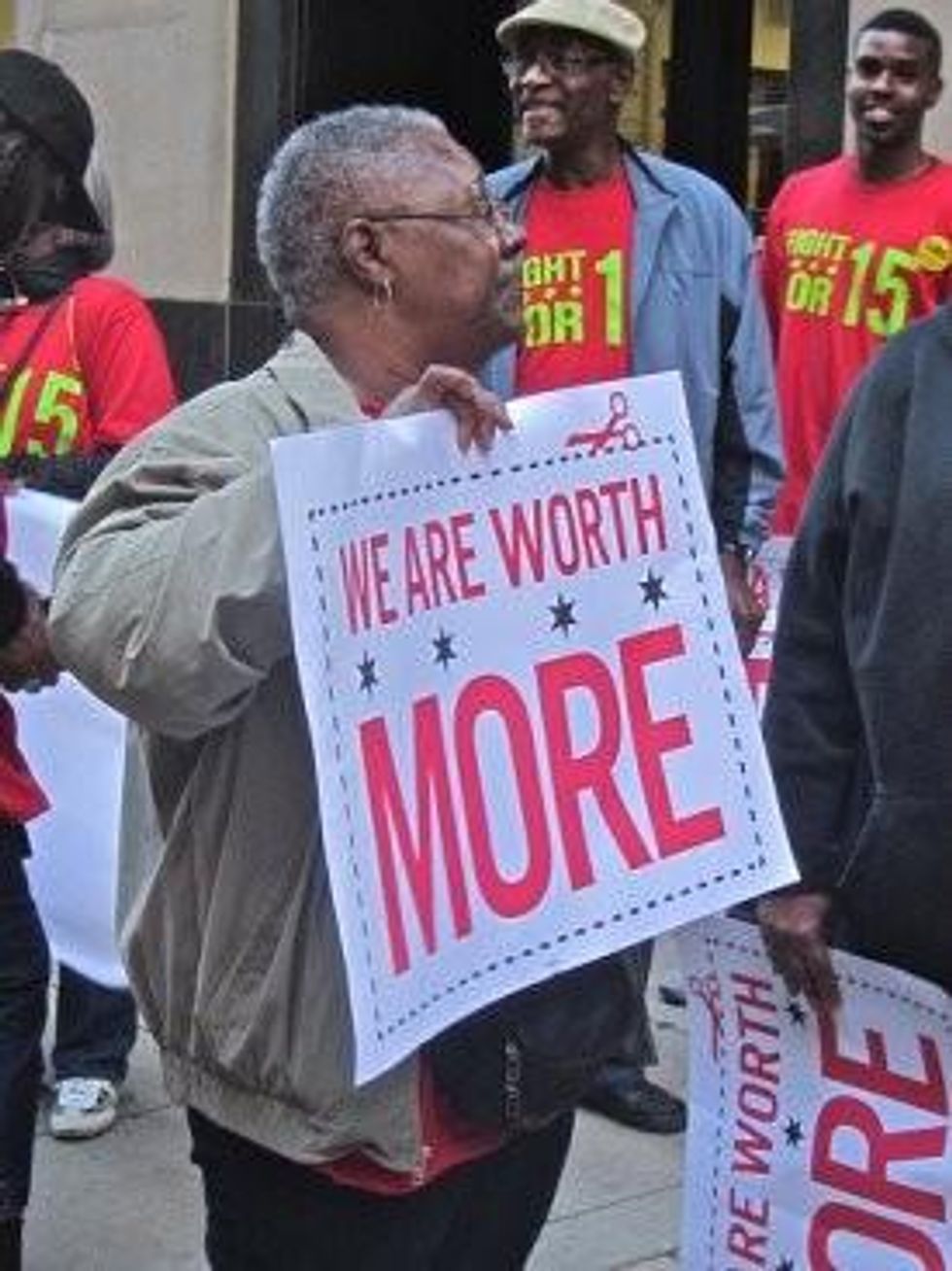Low-wage fast-food jobs cost the American public nearly 7 billion a year, according to a new report by researchers at the University of California at Berkeley.
Workers on the front line of the $200 billion-a-year industry make a median of $8.69 an hour and rarely get health benefits. And, in contrast to a common misconception, the
majority of fast-food workers are not teenagers, and more than one third of those over 20 are raising at least one child.
This economic situation is forcing 52% of the workers, including those who work full-time, to rely on safety net programs including Medicaid, the Supplemental Nutrition Assistance Program, also known as food stamps, Temporary Assistance for Needy Families, the Children's Health Insurance Program, as well as Earned Income Tax Credit payments to make ends meet, all of which adds up to almost $7 annually.
"The taxpayer costs we discovered were staggering," said Ken Jacobs, report co-author and chair of UC Berkeley's Center for Labor Research and Education. "People who work in fast-food jobs are paid so little that having to rely on public assistance is the rule, rather than the exception, even for those working 40 hours or more a week."
For many fast-food workers, it's a life of poverty. The report's executive summary notes that "One in five families with a member holding a fast-food job has an income below the poverty line, and 43 percent have an income two times the federal poverty level or less."
"The cost is public because taxpayers bear it," added UC Berkeley economist Sylvia Allegretto, co-chair of the Center for Wage and Employment Dynamics. "Yet it remains hidden in national policy debates about poverty, employment and public spending."
A companion report by the National Employment Law Project breaks the numbers down further by looking at the 10 biggest fast-food chains in teh U.S., which earned over $7.7 billion in profits last year: McDonald's, Yum! Brands (owner of Pizza Hut, Taco Bell, and KFC), Subway, Burger King, Wendy's, Dunkin' Donuts, Dairy Queen, Little Caesars, Sonic, and Domino's.
Their report found that "McDonald's alone costs taxpayers an estimated $1.2 billion each year;" that's almost twice as much as its next largest competitor, Yum! Brands.
"Every time taxpayers have to pick up the tab for basic necessities that workers don't get via their jobs, and can't afford on their low wages, we're making a direct deposit to corporate profits," said Christine L. Owens, executive director of the National Employment Law Project.
"In the case of fast food, that means multi-national corporations like McDonald's amass profits not only by paying low wages, but from all of us too--whether we buy their products or not. It's a sweet deal for McDonald's and other fast-food giants, but the rest of us get burnt," said Owens.
Echoing Owens, Wendy Pollack, Director of the Women's Law and Policy Project at the Sargent Shriver National Center on Poverty Law, said, "The high public cost of these low-wage, no benefits jobs is paid by taxpayers for the benefit of the corporations' bottom line."
The economic hardship caused by low pay to fast-food workers has gained attention since a wave of protests calling for a $15-an-hour from minimum wage pay and the right to unionize began nearly a year ago and spread nationwide.
___________________




